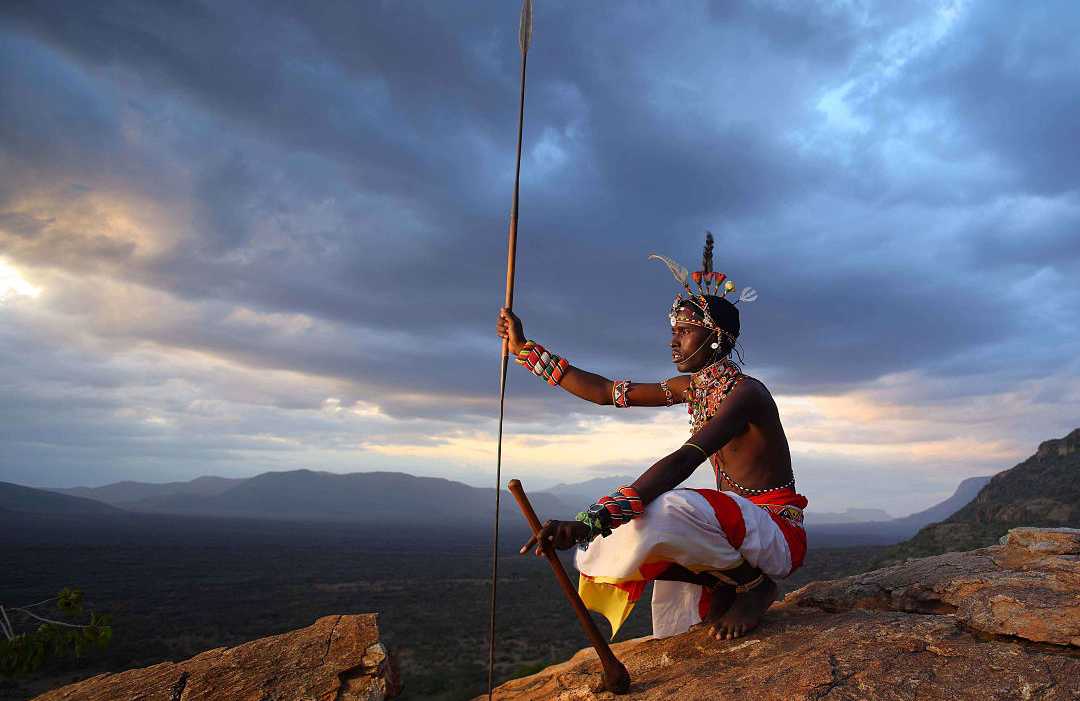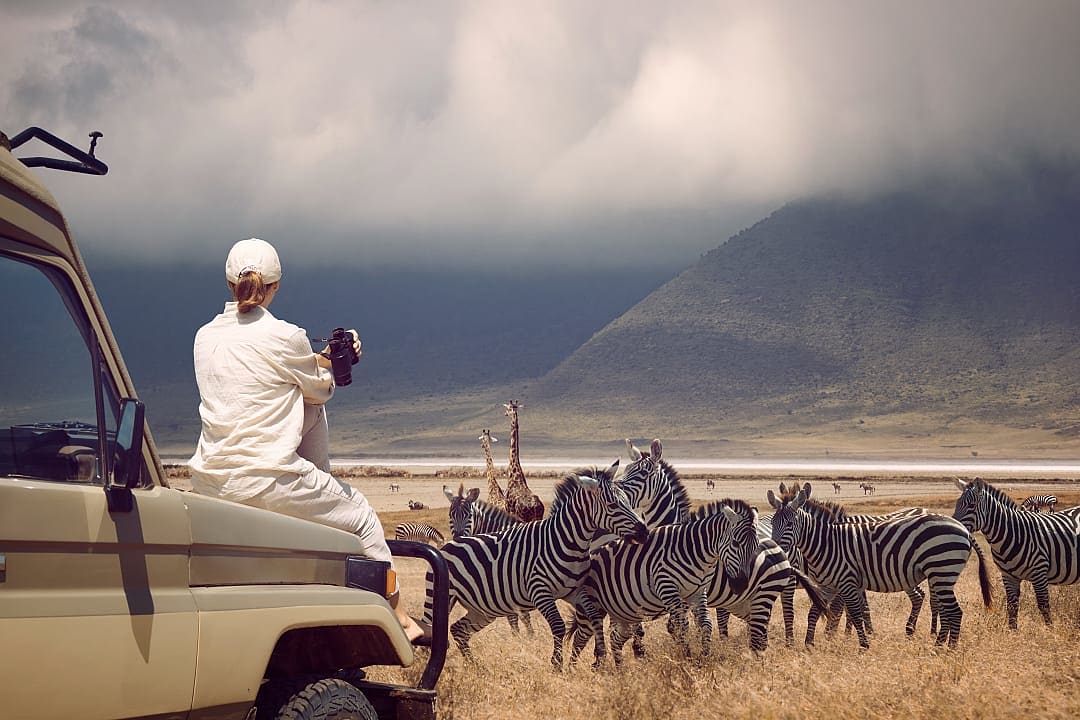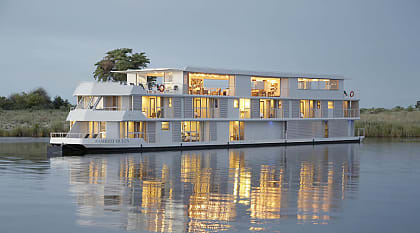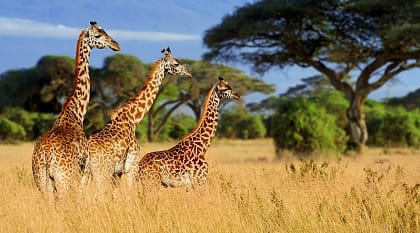Why This Connection Transforms Your Safari
Your guide becomes your interpreter of the African wilderness, translating subtle environmental signs, animal behaviors, and cultural nuances that would otherwise remain invisible to untrained eyes. This relationship extends far beyond simple wildlife spotting into deep storytelling, conservation education, and cultural bridge-building. The best guides possess encyclopedic knowledge gained through decades of bush experience, combining scientific understanding with intuitive wilderness wisdom.
Your private vehicle allows your guide to adapt the safari entirely to your interests and pace, creating space for meaningful conversations about conservation challenges, local cultures, and the intricate ecological relationships that govern African wilderness areas. This flexibility enables the guide to share personal stories about individual animals they have tracked for years, creating narrative threads that transform wildlife encounters into compelling personal dramas.
Ancient Knowledge Meets Modern Conservation
Professional safari guides often come from communities with deep historical connections to wildlife areas, inheriting traditional ecological knowledge while gaining modern conservation science training. The Shangaan trackers of Greater Kruger possess tracking skills refined over centuries. They can read animal movements in sand particles and vegetation disturbances invisible to outsiders. Maasai guides in East Africa combine traditional pastoralist wisdom with contemporary wildlife management techniques, understanding ancient migration patterns and current conservation challenges.
Your guide serves as a living library of bush knowledge, sharing insights about how climate change affects animal behavior, explaining the complex politics of human-wildlife conflict, and revealing the daily conservation battles fought by local communities. These conversations provide context that transforms simple wildlife sightings into a deeper understanding of ecological interconnectedness and conservation urgency.
What to Expect from Your Guide Relationship
Professional guides develop personal relationships with individual animals over years of observation, creating opportunities for you to become part of these ongoing stories. Your guide might say, "There's Scar, the leopard we've been following for three years. She just had cubs in that rocky outcrop. Let's wait quietly and see if she emerges." This intimate knowledge transforms anonymous animals into familiar characters with individual personalities, territories, and behavioral patterns.
The relationship deepens through shared experiences that test your comfort zones. When your guide suggests the walking path to a feeding elephant herd, their calm confidence and detailed safety briefing build trust that allows you to overcome natural fears. These moments of vulnerability create authentic human connections based on mutual respect and shared adventure rather than simple service transactions.
- Evening conversations around the campfire reveal personal stories: Your guide shares tales of close encounters with dangerous animals, explains traditional beliefs about wildlife spirits, and describes the emotional challenges of witnessing poaching incidents or habitat destruction.
- Teaching moments emerge naturally throughout game drives: Your guide demonstrates how to read animal tracks in dust, explains the significance of different bird alarm calls, and points out subtle vegetation changes that indicate seasonal migration patterns.
- Cultural insights provide context beyond wildlife viewing: Your guide explains how local communities view different animals spiritually, describes traditional hunting practices and their role in conservation, and shares personal experiences of growing up in villages adjacent to wildlife areas.
- Conservation education becomes personal and immediate: Your guide shows you anti-poaching snares removed from animal trails, explains how tourism revenue supports local schools and clinics, and describes specific conservation successes you can witness during your safari.
Where These Guide Connections Flourish
- South Luangwa National Park, Zambia: Walking safaris with expert guides provide intimate bush experiences where detailed animal tracking and plant identification create educational adventures. The concentration of wildlife along the Luangwa River during the dry season provides countless teaching opportunities for experienced guides to share ecological insights.
- Maasai Mara National Reserve, Kenya: Maasai guides combine traditional ecological knowledge with contemporary conservation science, offering unique perspectives on wildlife management and cultural coexistence. The annual wildebeest migration provides dramatic backdrops for learning about animal behavior and ecological cycles.
- Okavango Delta, Botswana: Local guides navigate complex waterway systems using traditional mokoro, or dugout canoe, techniques while explaining wetland ecology and seasonal flooding patterns. Their intimate knowledge of bird behavior and aquatic ecosystems creates opportunities for specialized learning experiences.
- Greater Kruger Area, South Africa: Multi-generational guiding families share bushcraft skills developed over decades of wildlife observation. Private reserve guides offer off-road tracking experiences that reveal animal behavior patterns impossible to observe from main roads.
- Hwange National Park, Zimbabwe: Experienced guides with intimate knowledge of elephant behavior provide insights into complex social structures and communication methods. The park's diverse ecosystems allow guides to demonstrate how different animals adapt to varying environmental conditions.
On Zicasso’s Exceptional South Africa and Botswana: Sabi Sands to Okavango Delta tour, build meaningful relationships with expert guides who transform wildlife sightings into unforgettable stories and educational adventures.









